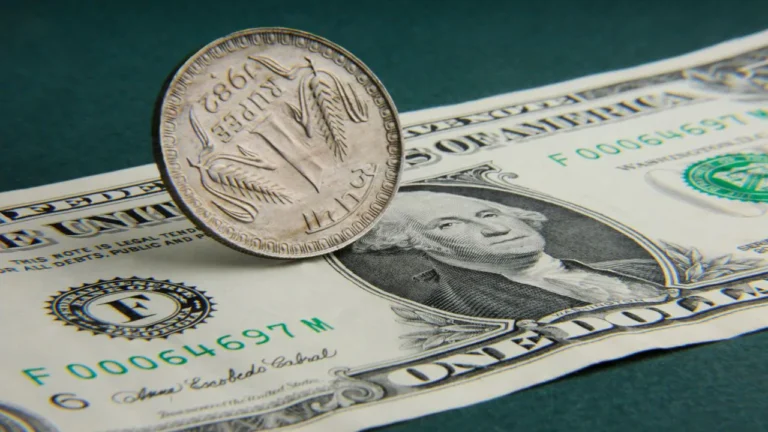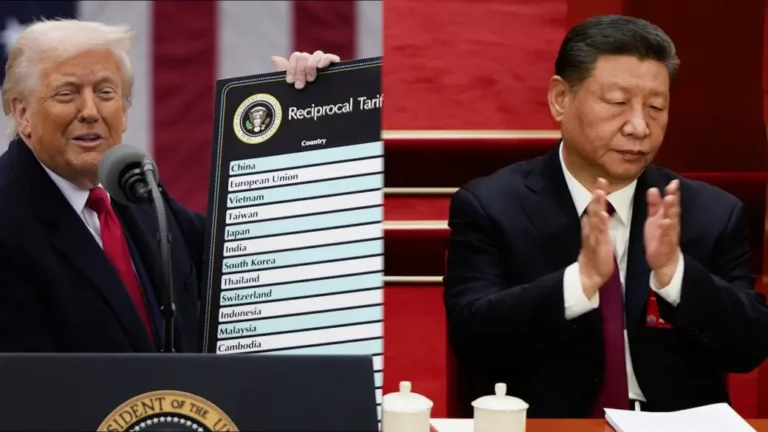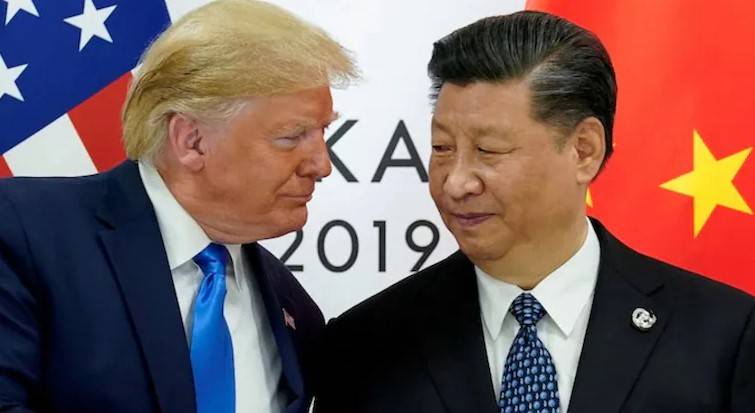White House Issues Global Warning After Trump Imposes 125% Tariffs on China

Washington, D.C. – April 10, 2025
The White House issued a strong warning to the international community today after former President Donald Trump announced sweeping new tariffs on Chinese imports, escalating to an unprecedented 125%. The move has sparked a wave of concern from global leaders and markets alike, intensifying fears of a renewed trade war between the world’s two largest economies.
Trump, who remains a dominant figure in Republican politics and is campaigning for the 2024 election rerun, declared the tariff hike during a press conference in New York, calling it a “necessary step to protect American industries and jobs.” He accused Beijing of “decades of economic aggression” and claimed the tariffs would level the playing field for American manufacturers.
In response, the White House released a formal statement, warning other nations against taking sides or retaliating in a way that could disrupt global economic stability. “We urge our allies and partners to remain neutral and avoid exacerbating tensions,” the statement read, emphasizing the importance of diplomacy and strategic patience in navigating the economic challenges ahead.
Global Reactions and Economic Implications

China’s Ministry of Commerce responded swiftly, criticizing the move as “unilateral and deeply harmful” to global trade norms. Analysts expect Beijing may retaliate with countermeasures, such as tariffs on U.S. agricultural goods or tech components, which could further disrupt international supply chains.
Financial markets reacted with volatility. The Dow Jones dropped nearly 500 points shortly after Trump’s announcement, while Asian markets also closed in the red amid growing uncertainty.
Economists have expressed concerns about the long-term impact of the tariffs. “A 125% tariff is almost unheard of in modern trade relations,” said Carla Mendez, senior economist at Global Market Insights. “If these policies are sustained or expanded, they could lead to inflation, reduced trade flows, and possible economic isolation.”
Political Ramifications
The move has reignited debate within the U.S. over the effectiveness and consequences of protectionist trade policies. Democratic leaders criticized Trump’s decision as reckless, arguing that it risks alienating allies and harming American consumers through rising prices.
However, Trump’s supporters hail the move as bold and necessary. “We finally have someone standing up to China,” said Senator Mark Lawson, a pro-Trump Republican. “These tariffs are about national security and economic independence.”
What’s Next?
While the tariffs have not yet taken effect, sources within the administration suggest the policy could be implemented in phases over the coming weeks. Meanwhile, the White House has confirmed it is reaching out to allies, including the EU, Japan, and Canada, to coordinate a collective response that prioritizes global stability.
Analysts say the next few days will be crucial in determining whether this aggressive move will lead to further escalation—or a new round of trade negotiations.
Conclusion
As geopolitical tensions rise, the global community watches closely. Whether this development leads to lasting change in international trade or deeper economic rifts will depend largely on diplomatic maneuvering in the days to come.
The announcement of a staggering 125% tariff on Chinese goods by President Trump has sent shockwaves through global markets and diplomatic circles. The White House has followed up with a stern global warning, emphasizing the administration’s renewed hardline stance on trade imbalances and intellectual property violations. While the move is being applauded by some U.S. industries seeking protection, others fear severe retaliation from China and a potential domino effect on global supply chains. This development marks a sharp turn in U.S.–China relations, and the world is watching with bated breath as geopolitical tensions rise once again.
🌐 Reputed External Sources for Further Reading
- Reuters – White House warns of economic consequences after new China tariffs
- Bloomberg – Trump’s 125% Tariff Decision Shakes Global Trade Landscape
- The Wall Street Journal – Trump Administration Targets China With Sweeping Tariff Hike





